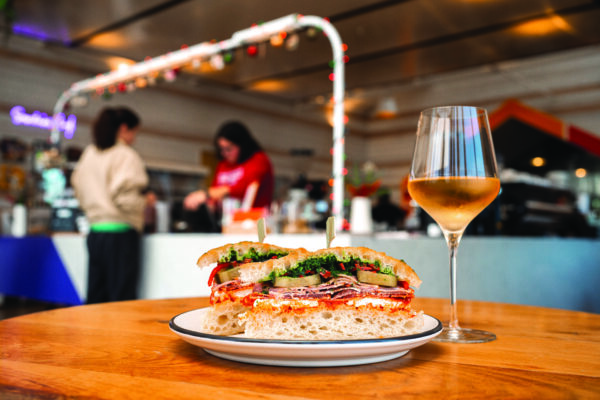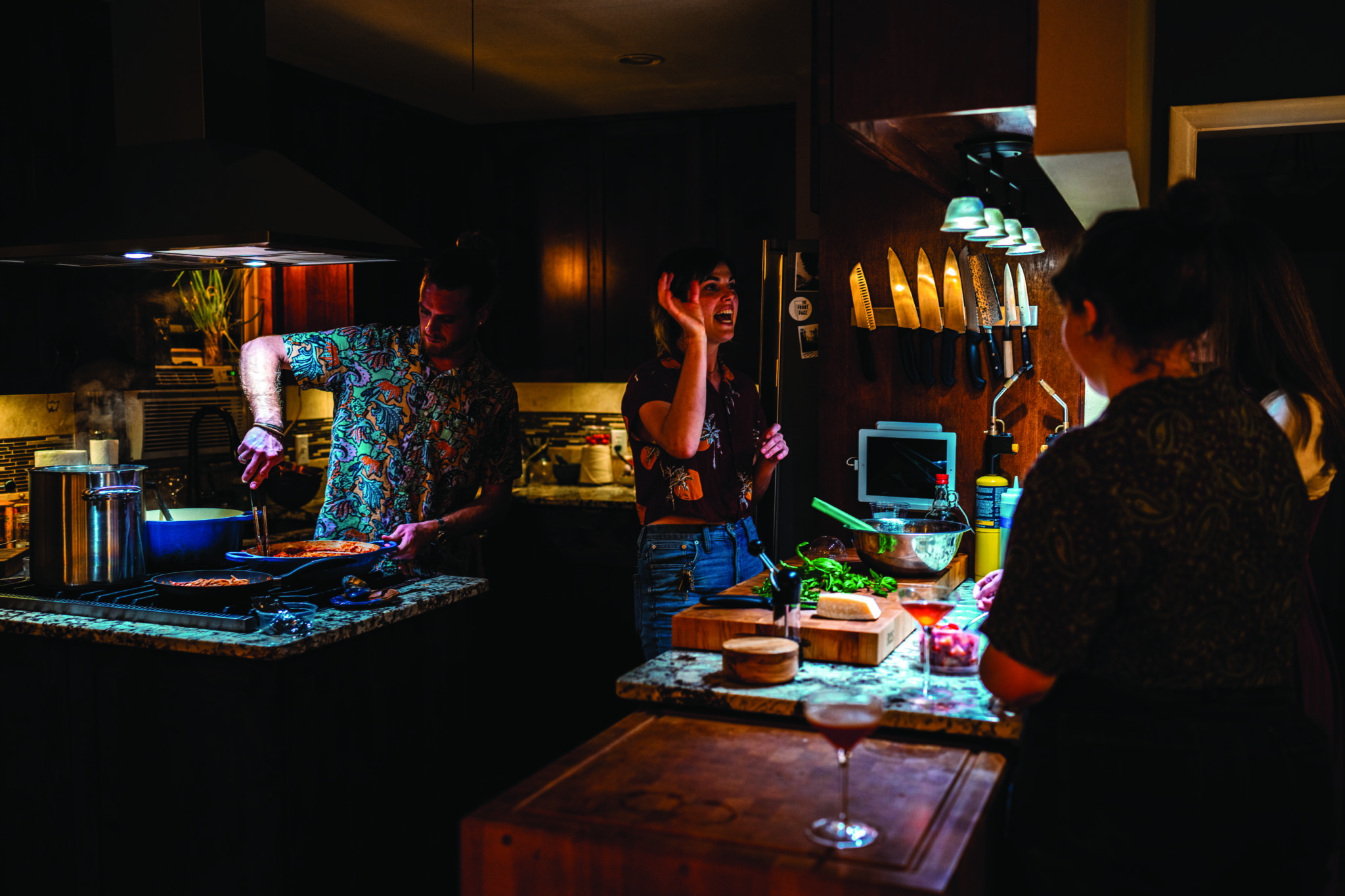Slow Furniture by Domi Goods

How One Artisan Creates Lasting Family Memories
Words by Abby L. Johnson Photos by Eric Morales
Many childhood homes had them: the decades-old heirloom pieces in dark, knotted wood, decorated with a splattering of scratches and nicks, each containing their own story. Taking the form of dining tables, China cabinets, dressers, and cozy chairs, handcrafted furniture tends to stick around through generations.
Philip Hernandez, Dallas-native and longtime Eastsider, is a designer and fabricator of custom-made furniture. Much like the slow food or slow fashion movements, Philip’s woodworking process is marked by handcrafting, use of local materials, time-tested techniques, and most importantly, intentionality. Every piece he creates is tailored to the needs of his clients, the specifications of the space it will occupy, and is imbued with the expectation that it will last significantly longer than mass produced pieces.
Established in 2015, Philip creates under the studio name Domi Goods. Domi is Latin for house or home. He brings to his practice a background in homebuilding and, somewhat surprisingly, anthropology. He notes, “The study of humans and human culture is something that is still deep within, the cultural relevance of furniture in your living space. It’s not just a place where you sleep or a place where you eat. These items that we keep in our house are things that we live with and things that we age with. We have special moments all over the house.” He emphasizes the importance of furniture that stays through the years of memories by saying, “Those special pieces can be a part of your life, almost like a family member.” While family members can’t be handpicked, objects that make up a life certainly can be, and quality pieces like these can create a lasting legacy.

Though every piece is made with the patron’s taste in mind, Philip’s work is generally marked by mid-century modern esthetics and minimalist appeal. He also takes influences from Japanese traditions. In fact, many of his tools were made in Japan, and he considers that fact an integral part of the trade. “The whole process, from the tools to the final product, all have an inherent integrity to it. I want [furniture pieces] to be imbued with all the history of woodworking and the history of artisan making.” He adds, “This is important because the furniture that I make is not an inexpensive item. I don’t rush through it. I like to give my everything.” This dedication is apparent in every unique piece Philip brings to life.
The Splinter Group
Besides working on his own craft, Philip is also involved in The Splinter Group, an organization that aims to host a range of artisans in an affordable studio space in central East Austin.
Contact:
3508 E Cesar Chavez St.
domigoods.com
@domigoods









